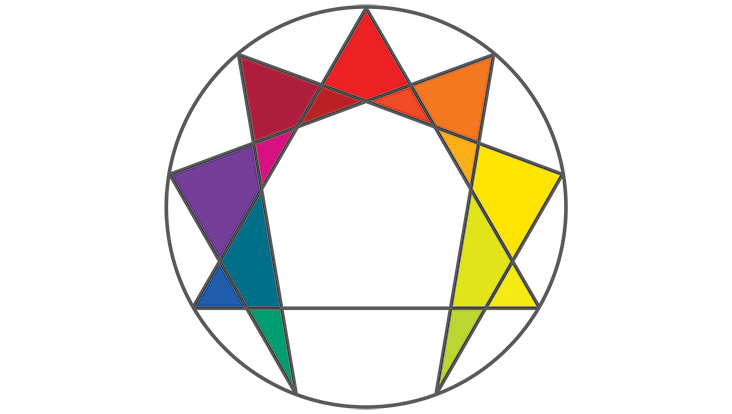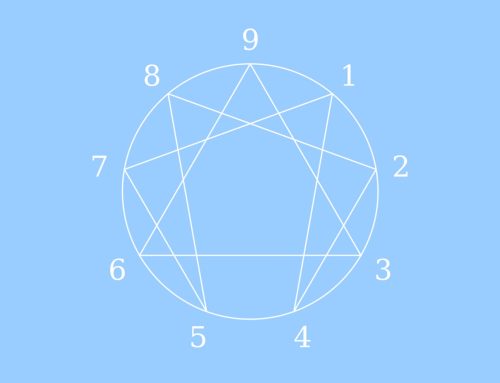The Core Struggles of Each Enneagram Type
February 16, 2020
Categories: Enneagram
Sometimes people struggle to discover their Enneagram number. When this happens, one thing that can be helpful is to look at the core struggles for each type. Sometimes we are more in tune with our pain than our strengths. Here is a description of the core struggles for each Enneagram type.
Type 1
Ones struggle with needing everything to be perfect. They are quick to notice the flaws in themselves, others, and the world. They have difficulty giving grace and letting things go. They can see what is wrong, and they want to fix it.
Type 2
Twos struggle with making their own needs a priority. Instead of dealing with their own issues, they are focused on helping other people with their problems. They can get frustrated when other people don’t “return the favor.” Also, sometimes their “help” can feel controlling or manipulative.
Type 3
Threes struggle with feeling a sense of worth apart from their accomplishments. They have a deep need to achieve (and are usually pretty effective in life), but this can easily turn into workaholism. They also can be very image-focused. Sometimes the drive to succeed (or appear successful) leads them to cut corners.
Type 4
Fours struggle with feeling like something is missing. They are unique and deeply emotional (i.e., they feel things deeply), but can struggle with feeling misunderstood by others. They can also be susceptible to struggling with emotional problems such as depression or anxiety.
Type 5
Fives struggle to fully engage with other people and with their life. They would prefer to observe what is happening from the outside, rather than being in the mix of things. In other words, they tend to sit on the sidelines. They also tend to isolate and not be in touch with their emotions.
Type 6
Sixes struggle with anxiety and fear. They have a deep need for security and tend to play it safe. They struggle to trust themselves and their intuition—they often ask a committee for help in making their decisions. They have a push-pull relationship with authority. They often align themselves with a powerful authority structure (e.g., religion, politics) because it helps them feel safe. But they sometimes resist authority as well.
Type 7
Sevens struggle to acknowledge and own their own pain. They are so focused on pleasure and having fun experiences that they can deny the reality that there is a darker side of life. They can avoid their problems. They have a lot of energy and bounce from activity to activity, but can have trouble connecting on a deep level.
Type 8
Eights struggle with experiencing true empathy and compassion for others. They are strong and effective in pushing forward their agenda and what they think is right. But if they aren’t careful, they can run over people and leave them in their wake on their way toward their goal.
Type 9
Nines struggle with making decisions and moving forward toward a particular goal. They are able to see multiple sides of an issue, so they have trouble figuring out what they believe or want to do. They are laid back, which can sometimes turn into laziness and difficulty getting moving.
Self-Reflection
Think about your life right now. What are you struggling with the most? Do you see any connection between your current struggle and the core struggle of one of the nine Enneagram types? For example, in my life right now, I’m feeling anxious because I’m serving as the acting program director at my school, while the actual program director is on sabbatical. I find myself questioning my decisions and asking others for feedback. This connects with the core struggle of the six, which is my number.
Another helpful exercise is to think back to when you were about 20 years old. By this time in your life, personality has generally solidified, but people usually haven’t yet engaged in deep personal work (e.g., long-term therapy). What do you remember struggling with most when you were 20? Do you see any connection between your struggle at age 20 and one of the nine Enneagram types? For example, I remember struggling a lot with being scared of commitment when it came to romantic relationships. I also had a lot of issues with authority—I was deeply involved in an intense religious community, but there was a part of me that hated it. These struggles at age 20 definitely connect with the core struggle of the six.

Related Thoughts

Subscribe To My Newsletter
Join my mailing list to receive the latest blog posts.
Receive my e-book “The Mental Health Toolkit” for free when you subscribe.





